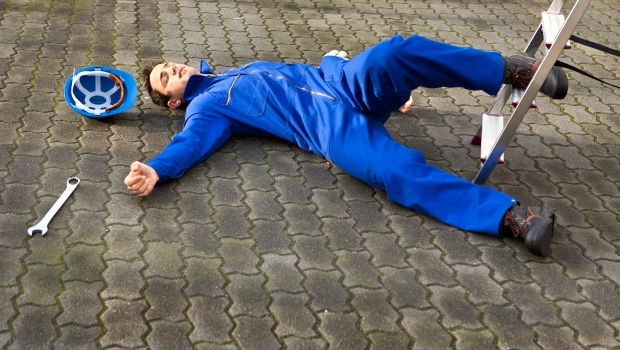Avoiding incidents of personal injury at your self-storage facility requires planning and common sense. Here’s insight to reducing exposure, handling any events that do occur and obtaining the proper insurance coverages.
December 17, 2016

By Melanie Wichelman
Avoiding incidents of personal injury at your self-storage facility takes planning and some plain old common sense. Facility owners and managers open themselves to the risk of onsite injuries every day due to the sheer volume of people coming and going on their property. First, there are tenants and guests of tenants, who are often there to help move items. Sometimes this includes children. There are also employees. Without proper preparation, unnecessary injuries can occur. By taking preventive action, you can limit the risks.
Reduce Exposure
It’s imperative to stay ahead of risks by keeping on top of your property maintenance. Perhaps one of these thoughts keeps you awake at night: I need to change out the lights near Building A; I really need to seal the cracked concrete by the entrance gate; the exposed piping needs to be fixed. Make these tasks a priority.
Falling behind on property upkeep will increase the chances of an injury occurring. Poor maintenance could also make you more liable in the event of an accident. Yes, some injuries are unavoidable; but by fixing the hazards of which you’re aware, you can greatly reduce risks. You can also transfer the burden of unavoidable accidents by relying on proper insurance (more on this later).
Another way to lower risk is by educating and informing your customers. Make sure tenants are aware of basic safety and risk-prevention measures. Do your unit doors have handles or a safe pull rope? Instruct new tenants on the proper way to open doors using these features. Remember, what some people consider common sense may not even register in someone else’s mind. For example, if a person needs to reach a high area, he should use a sturdy ladder or step stool, not stand on boxes or furniture.
If possible, hang posters with moving tips and reminders. Don’t forget it’s just as important to educate and inform employees on these tips as well. A well-educated staff can be your first line of defense for accident prevention.
Reacting to an Incident
Even the best-run facilities may have a mishap from time to time. When accidents do occur, there’s no need to panic. There are a few steps that will help keep the situation calm and protect your business.
First, evaluate the situation and determine the type of medical attention needed. If necessary, call 911 right away to let professionals handle medical needs and care.
Once everyone is safe, immediately file a claim with your insurance company. Make sure to document as much as possible—as soon as possible. Include all the incident details, such as names and dates, and describe what occurred. Before-and-after pictures of the area or scene of an accident can come in very handy if things escalate.
Finally, do not take responsibility or blame. It’s OK (and recommended) to be sympathetic and supportive with the injured party. It’s human nature to want to help and be kind. However, while doing so, don’t take the blame or admit responsibility for the accident. Be efficient and effective in keeping the situation calm and under control.
Proper Coverage
The best tool to protect your self-storage business in the event of injury is the appropriate liability insurance. General liability coverage is crucial in protecting your facility, especially against great financial harm. If you have a package policy, make sure it includes medical payments. This is a form of no-fault insurance that can help cover onsite injuries that won’t escalate to a legal battle. It’s the carrier’s job to determine if medical payments are appropriate. Anything beyond this would fall under your general liability coverage, which can help pay larger injury claims and any associated legal expenses.
When reviewing your insurance needs, remember your employees. Your staff spends more time onsite than anyone. Even when they’re properly trained on safety procedures, accidents can and will happen. Having a workers’ compensation policy will protect your facility when there are work-related accidents. This type of coverage provides care and compensation for any lost income for the employee. In fact, it’s mandated in most states.
To learn what liability limits are recommended for your facility, talk to a specialized insurance agent. Self-storage isn’t your average business, and facilities have needs specific to the industry. A specialized agent can help you review and determine what limits work best for your operation.
By keeping these tips in mind, you’ll help keep customers and staff safe and happy. Most important, you’ll be protecting one of your biggest assets—your business! Carelessness will have harmful and financial consequences that are tough to move past. Stay one step ahead by preparing against accidents and knowing what to do when they occur.
Melanie Wichelman is an account executive with Universal Insurance Programs, which has created and provided specialized insurance coverages to the self-storage industry for more than 20 years. For more information, call 800.844.2101; visit www.universalinsuranceltd.com.
You May Also Like





